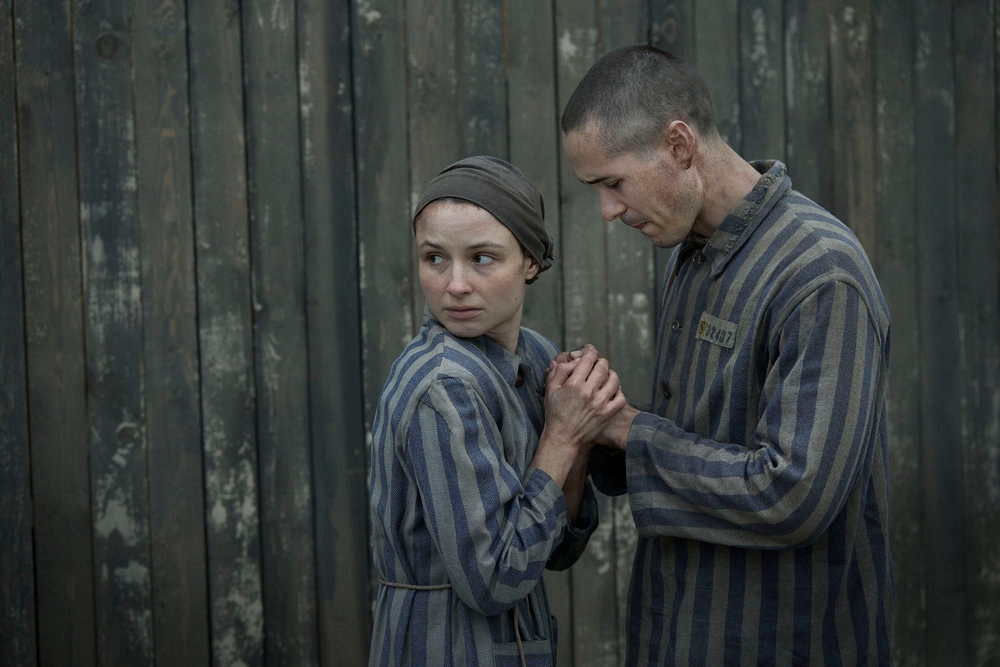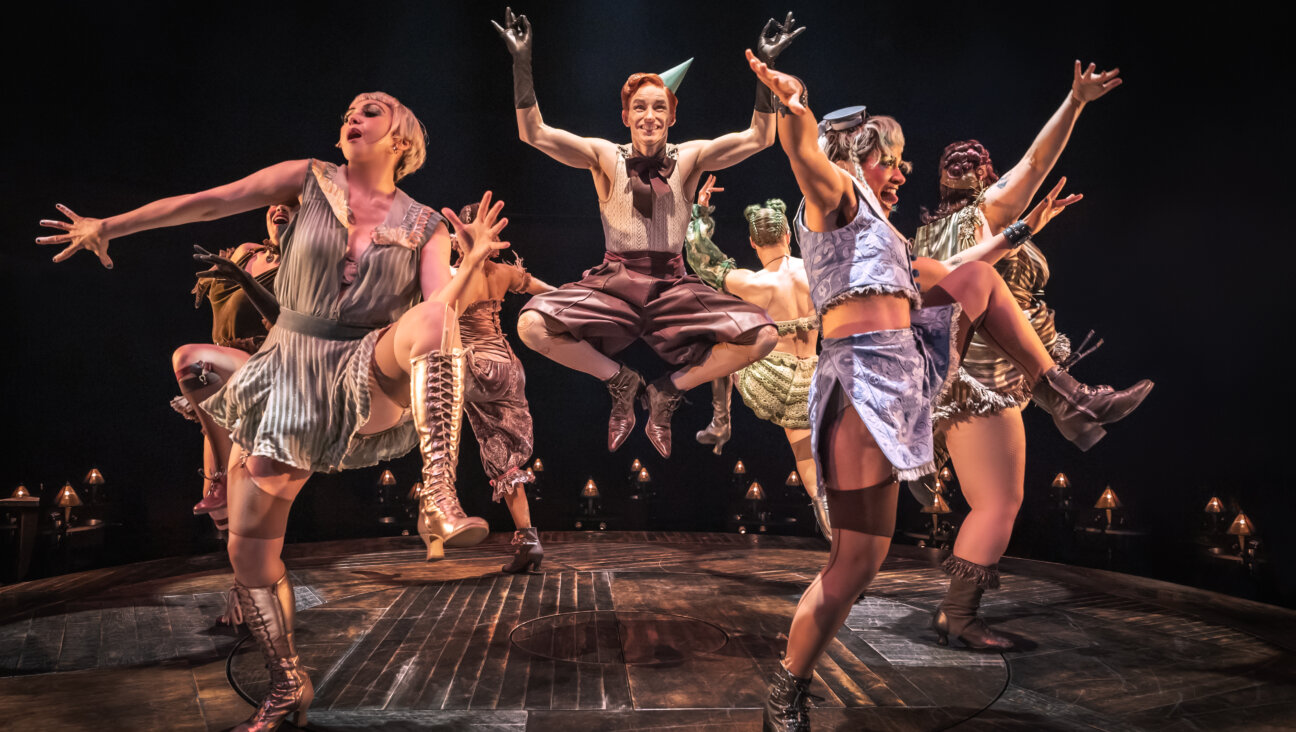In Nessa Rapoport’s ‘Evening,’ the sun sets on a complicated sisterhood

“Evening” by Nessa Rapoport. Image by Courtesy of Counterpoint Press
Midway through “Evening,” Nessa Rapoport’s second novel, two teenage sisters stand in the bathroom, squabbling.
Eve is readying herself for a date with Laurie, an older boy who happens to be a friend of her sister, Tam, and Tam is scolding her: For the steam with which she’s filled their bathroom, the perfume she’s sprayed everywhere, her overuse of their shared compact of blush. Both girls understand they’re not really sparring about the blush, but their argument doesn’t really concern Laurie, either. What they’re really adjudicating are their positions relative to each other, the personae — Tam the dutiful homebody, Eve the disorderly flirt — that take shape only in contrast to their opposites.
If you’re an American reader who came into the world sometime between the Gilded Age and now, Eve’s date probably brings to mind the original Laurie: the hapless heartthrob who puts sisters at odds in Louisa May Alcott’s “Little Women.” It’s impossible to know if Rapoport had Alcott in mind when writing. But “Evening” shares more than a name with its predecessor in the canon of novels about sisterhood: Like a darker, sexier “Little Women,” it excavates a seemingly saccharine family dynamic to reveal the tangled knot of obligations and entitlements, admirations and resentments, that underpin the closest of sibling bonds.
The novel’s main action takes place nearly two decades after that teenage tableau. (Warning: Spoilers follow!) At 35, Eve has long since abandoned her stormy teenage relationship with Laurie and her bourgeois Jewish-Canadian upbringing for a cafe-hopping life in New York City and a Ph.D. she can’t seem to finish. She’s never thrived in her family’s upper-crust milieu; her parents see her status as a single and not-terribly-successful academic as evidence of a dissolute “bohemian” lifestyle, which tells you most of what you need to know about them. Only family tragedy prompts her to return: She has to sit shiva for Tam, who built a formidable career as a news anchor, married a nice Jewish boy and produced the requisite number of grandchildren, before falling victim to breast cancer in her prime.
It’s a difficult trip, for reasons beyond the obvious. Reeling from Tam’s death, Eve is also unmoored by a cryptic letter suggesting that her steady, straightforward older sister had an affair in her last days. She’s separated from her diffident academic lover, Simon, and thrown back into the company of Laurie, who is just as alluring as ever. And Tam’s posthumous sanctification by her family, colleagues and friends forces Eve to confront the unsettling fact that the central bond in her life has been one of conflict.
Though the novel is structured around the seven days of shiva, its momentum lies in the prolonged flashbacks in which Eve recalls a relationship centered on mutual posturing. Case in point: the unsolicited life advice with which Tam barrages Eve at every opportunity, which ranges from the merely self-satisfied — “I’d never forgive myself if I kept my mouth shut and deprived you of a family” — to the genuinely cruel — “Don’t you think there’s something ridiculous about living for sensuality into your forties and fifties?” Invariably, Eve responds with smug tales of her exploits that obscure the genuine aimlessness she often feels. The things Eve and Tam say to each other demonstrate a compelling bond, in that they continue to speak to each other after they say them. But Rapoport suggests that the core of their relationship is an unusual kind of competition, in which each sister struggles not to better fulfill one prescribed role but to convince the other that the path she’s chosen is preferable.
Alcott’s Laurie fosters competition among the sisters he befriends; he’s an embodiment of the outside world’s habit of eroding what Alcott considers fundamentally positive female relationships. But Rapoport positions her Laurie as an accessory, a passive object on which Tam and Eve enact a battle that long predates his arrival. “Little Women” is a compelling book because it shows how external conditions, namely economic powerlessness, make it difficult for women to live up to contemporary ideals of selfless sisterhood. Rapoport takes that argument a step further, suggesting that such ideals are fictions and that sisterhood at its core is a combative, even destructive bond.
It’s difficult to write about competitive sisters without dipping into stereotypes of women as essentially venal and self-serving, ugly step-sisters forever sabotaging each other. Rapoport accomplishes the task deftly by combining the languorous scenes of childhood — midnight conferences under the covers, trips to an idyllic summer cottage — with gladiatorial language that evinces Eve’s discomfort with her sister: “The past is making guerilla incursions into my life,” she remarks after discovering that Tam’s mysterious paramour was in fact Laurie, with whom she’s currently embroiled in a mid-shiva fling.
That oscillation between nostalgia and simmering conflict functions better in Rapoport’s lush evocations of Eve’s memories than in her dialogue, whose sentences are so snappy and polished it’s hard to believe that people uttered them over coffee and cake. But the tactic also complicates the depiction of the sisters’ contentious relationship, slyly suggesting how central Eve’s struggle for emotional dominance is to her conception of herself. In giving her consistent advice to ignore and an always-available adversary to frustrate, Tam helped her sister cultivate a persona stronger and more self-assured it might have been otherwise. Her parting salvo, intentional or not, is the anxiety with which her death leaves Eve: not the conventional grief for a lost companion but the worry that her character doesn’t exist without its foil.
In a denouement that’s a little too swift to credit, Eve overcomes this anxiety by finally following her sister’s romantic advice. (As in “Little Women,” a marriage-minded professor turns up at a suspiciously convenient moment.) To her relieved family, it seems that Eve is compensating for Tam’s death by taking on her role as a responsible daughter. Eve seems to agree with them: In the novel’s final lines, she imagines Tam responding to her change of course with a gently whispered “I told you so.” But that line is a fiction, conceived by Eve. It could just as easily be directed at her sister as proof that Eve can function perfectly well without her sister, emulating Tam without ceding any of her own ground.
To the world, and to Eve herself, it seems that Tam’s legacy is helping her recover from grief. But as a reader, it’s hard to escape the feeling that Eve is finally winning out over her sister.
Irene Katz Connelly is an editorial fellow at the Forward. You can contact her at [email protected]. Follow her on Twitter at @katz_conn

I hope you appreciated this article. Before you go, I’d like to ask you to please support the Forward’s award-winning journalism this Passover.
In this age of misinformation, our work is needed like never before. We report on the news that matters most to American Jews, driven by truth, not ideology.
At a time when newsrooms are closing or cutting back, the Forward has removed its paywall. That means for the first time in our 126-year history, Forward journalism is free to everyone, everywhere. With an ongoing war, rising antisemitism, and a flood of disinformation that may affect the upcoming election, we believe that free and open access to Jewish journalism is imperative.
Readers like you make it all possible. Right now, we’re in the middle of our Passover Pledge Drive and we still need 300 people to step up and make a gift to sustain our trustworthy, independent journalism.
Make a gift of any size and become a Forward member today. You’ll support our mission to tell the American Jewish story fully and fairly.
— Rachel Fishman Feddersen, Publisher and CEO
Join our mission to tell the Jewish story fully and fairly.
Only 300 more gifts needed by April 30

























